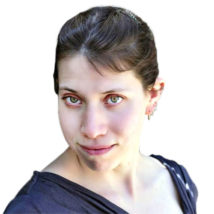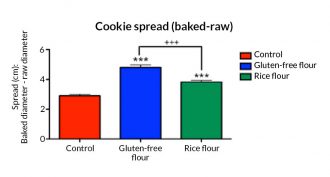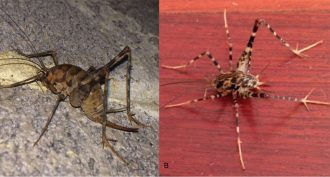
Bethany Brookshire was a longtime staff writer at Science News Explores and is the author of the book Pests: How Humans Create Animal Villains. She has a B.S. in biology and a B.A. in philosophy from The College of William and Mary, and a Ph.D. in physiology and pharmacology from Wake Forest University School of Medicine. She was a 2019-2020 Knight Science Journalism Fellow at MIT, the winner of the Society for Neuroscience Next Generation Award and the Three Quarks Daily Science Writing Award, among others.

All Stories by Bethany Brookshire
-
 Life
LifeScientists Say: Yeast
For some people, yeast bring to mind slimy infections. But these little fungal beasts are used to make bread rise, too.
-
 Science & Society
Science & SocietyThe 2016 Intel Scientist Talent Search on Twitter and beyond
On March 15, the Intel Science Talent Search celebrated its 75th anniversary. See this year’s competition through social media.
-

Tiny particles help plastic break down in the sun
Our world has a plastics problem. One teen has designed a new recipe for plastic that will speed its breakdown in the sun.
-

Teen scientists win big for health and environmental-cleanup research
The Intel Science Talent Search honors 40 students each year. The 2016 top award winners studied health technologies and how to clean local streams.
-

When teens fall in love — with science
Finalists at the Intel Science Talent Search competition tell Eureka! Lab about that moment when they knew they loved science.
-

Teen adds tiny bits of clay to make cement go with the flow
Flaws in cement contributed to the infamous Deepwater Horizon disaster. A teen hopes to create a better sealant.
-

Teen hunts exoplanets at our galaxy’s center
The center of our galaxy is full of stars. A teen showed there might just be unknown planets in the mix.
-
 Math
MathScientists Say: X-axis
The bars on a graph tell you nothing unless you know what they mean. The lines on the sides can let you know.
-

Citizen scientists spy on camel crickets
Ever seen a camel cricket — or spricket? Scientists asked homeowners about these hopping critters and found there may be a new invader on the loose.
-

-

Why teachers send mixed messages on climate science
Most middle- and high-school teachers now cover climate change. But they don’t always emphasize that scientists agree that human actions are a primary driver.
-

Scientists Say: Replication
A scientist can run an experiment and get a result. But that result won’t be truly trustworthy until other scientists rerun the tests and replicate the findings.